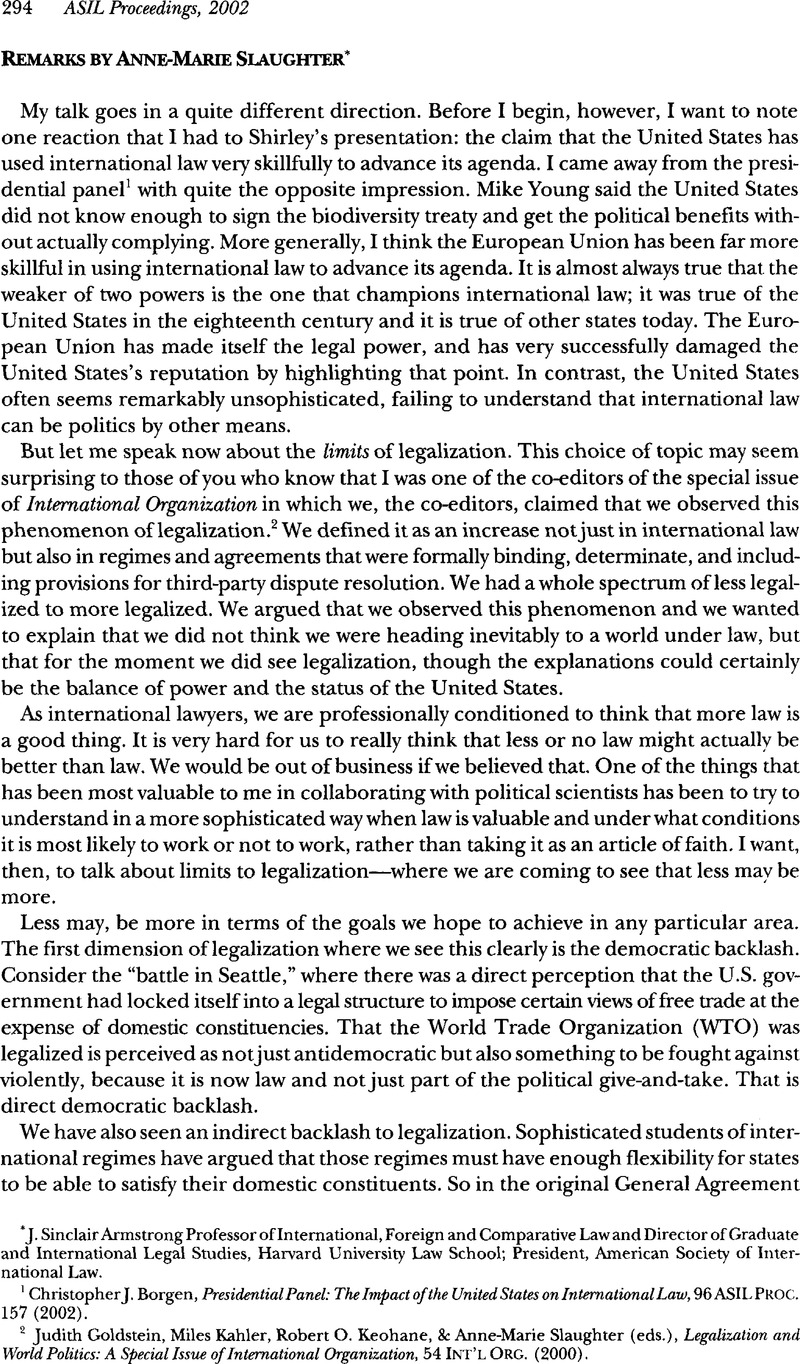No CrossRef data available.
Article contents
Remarks by Anne-Marie Slaughter
Published online by Cambridge University Press: 28 February 2017
Abstract

- Type
- The Legalization of International Relations
- Information
- Copyright
- Copyright © American Society of International Law 2002
References
1 Borgen, Christopher J., Presidential Panel: The Impact of the United States on International Law, 96 ASIL Proc. 157 (2002)Google Scholar.
2 Goldstein, Judith, Kahler, Miles, Keohane, Robert O., & Slaughter, Anne-Marie (eds.), Legalization and World Politics: A Special Issue of International Organization, 54 Int’l Org. (2000)Google Scholar.
3 Ruggie, John, International Regimes, Transactions, and Change: Embedded Liberalism in the Postwar Economic Order, 36 Int’l Org. 379 (1982)Google Scholar.
4 Schell, G. Richard, Trade Legalism and International Relations Theory: An Analysis of the WTO, 44 Duke L. J. 829 (1995)CrossRefGoogle Scholar.
5 Goldstein, Judith & Martin, Lisa, Legalization, Trade Liberalization, and Domestic Politics: A Cautionary Note, 54 Int’l Org. 603 (2000)CrossRefGoogle Scholar.
6 Heifer, Laurence R., Over legalizing Human Rights: International Relations Theory and the Commonwealth Caribbean Backlash Against Human Rights Regimes, 102 Colum. L. Rev. (forthcoming 2002)Google Scholar.




